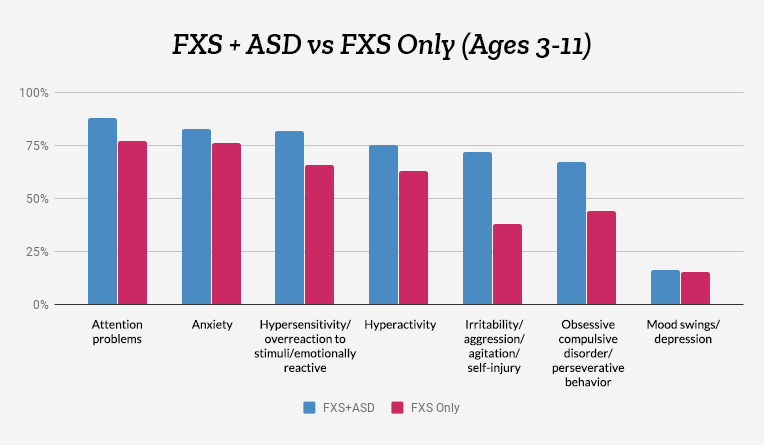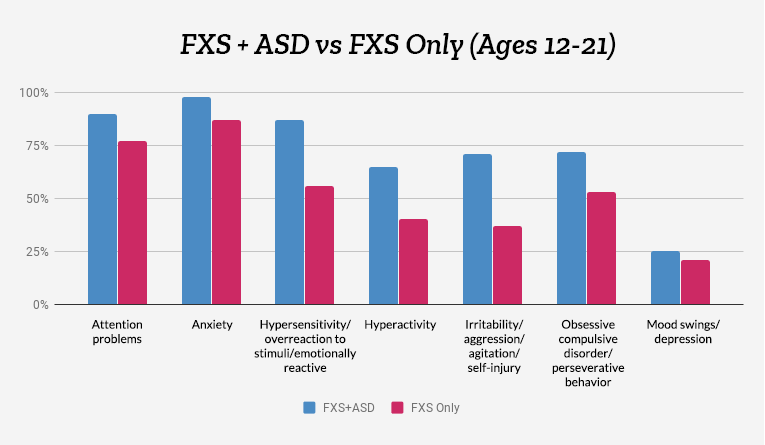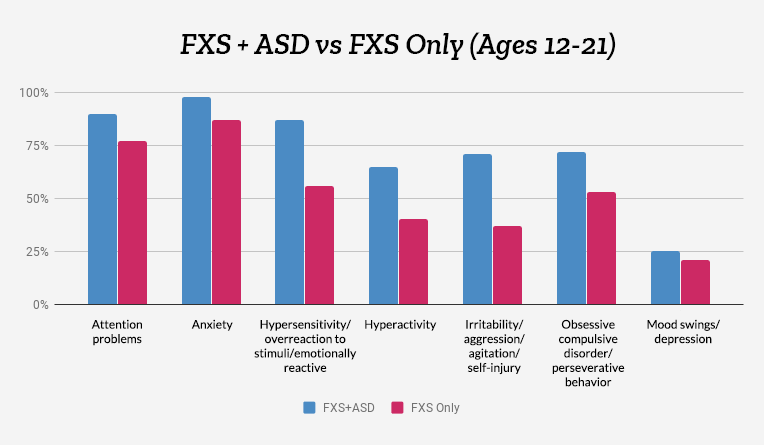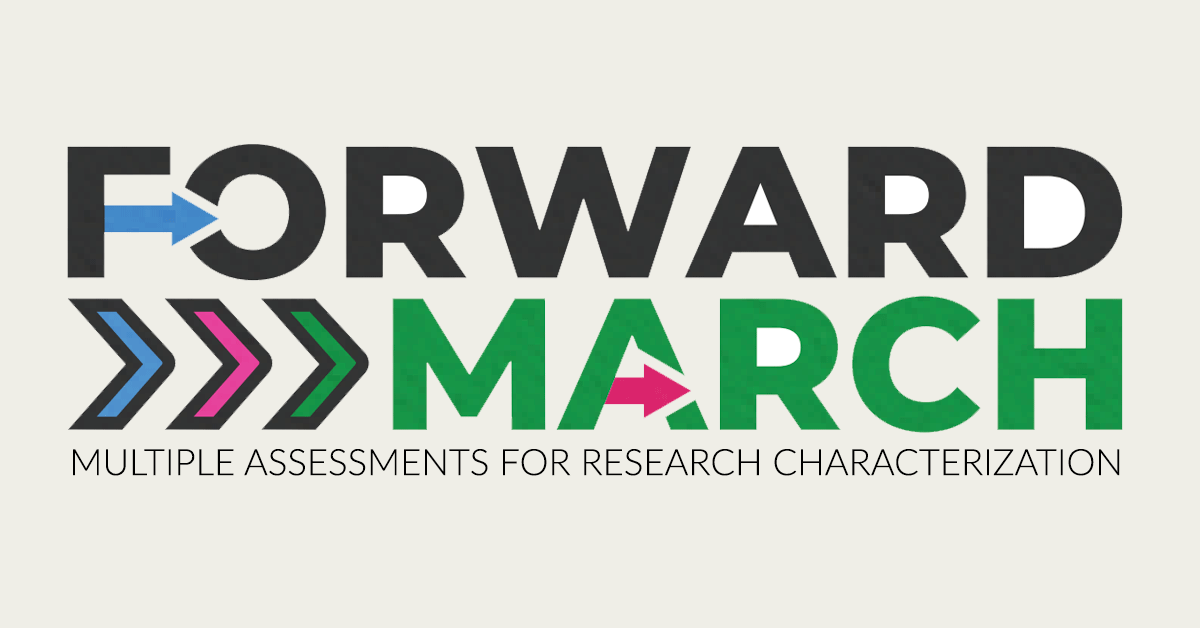The National Fragile X Foundation and our members are closely tied to autism: FXS—one of the more than 800 genes associated with autism—is the most common known single gene cause of autism, accounting for 1%–6% of all cases. Additionally, 46% of males and 16% of females with FXS have been diagnosed or treated for autism.
Here we take a look at behavioral issues in individuals with FXS plus ASD and compare them to those with FXS alone.
Studies involving the impact of an ASD co-diagnosis in FXS have to date relied mostly on parent-reported data and/or smaller sample populations. But thanks to the registry and longitudinal database FORWARD—the Fragile X Online Registry With Accessible Research Database—plus standardized clinician- and parent-reported data from 25 Fragile X clinics, we now have access to samples large enough to include a breakdown of findings by age groups.
The Impact of an ASD Co-Diagnosis on Behaviors in FXS
There are many different types of behaviors associated with ASD, regardless of ASD status and age, particularly attention issues and anxiety. In the first large scale study looking at autism in FXS, and using FORWARD and Fragile X clinic data, the charts below shows behaviors associated with FXS+ASD and FXS only, by age group (ages 3–11 and 12–21), in subjects enrolled in FORWARD from September 7, 2012, through August 31, 2014.
In general, the behavioral profiles were similar in both age groups. Regardless of their relative frequency, however, hyperactivity, hypersensitivity/overreactivity, perseverative/obsessive compulsive behavior, and irritability/aggressive behavior was much higher among those with FXS+ASD versus those with FXS only. The difference between FXS+ASD and FXS was less striking for anxiety, with only the older (ages 12–21) FXS+ASD group showing significantly higher anxiety than FXS only (98% vs. 87%). As a whole, mood swings/depression problems were less common (∼18%), with no significant difference between FXS+ASD and FXS only.


Behavioral problems associated with FXS+ASD and FXS only, by age group, in subjects enrolled from September 7, 2012 through August 31, 2014, FORWARD Database.
Other findings from the study included:
- FXS+ASD individuals were about 3x more likely to experience seizures.
- Sleep problems requiring treatment were found in 4 out of 10 with FXS+ASD vs. 3 out of 10 for FXS alone.
- Aggressive/disruptive behavior was treated with medication in 4 out of 10 of individuals with FXS+ASD vs. 2 out of 10 for those with FXS alone. Other behaviors were treated similarly in both groups.
Separately, FXS and ASD share many overlapping issues, so it’s important to understand these differences to ensure an accurate diagnosis. Most FXS behavioral issues trace back to anxiety and hyperarousal. Autism’s behavioral roots and manifestations are more complex and multi-faceted, which makes it essential to understand the root of the behavior before committing to a treatment plan.
And while parents may be well aware of the differences between FXS, ASD, and FXS+ASD, teachers, clinicians, and other professionals, need to understand that FXS+ASD isn’t merely a sum of its parts. But if FXS is just one cause out of an unknown number for autism, how does one affect the other? Unfortunately, we don’t yet know the answer to this question.
What is the FORWARD Registry & Database?
The natural history of those with Fragile X syndrome needs to be determined in order to conduct well-designed clinical trials that capture the entire spectrum of the disorder. This is particularly true for adults with FXS, about whom almost nothing is known regarding life trajectory and medical complications. Supported by grants from the CDC, the FORWARD Registry & Database (a project of the NFXF Fragile X Clinical & Research Consortium) was created to increase the scientific and clinical understanding of Fragile X syndrome.
One of the best ways for families to help advance our understanding and improve treatment is to join the FORWARD Registry & Database. You can learn more about joining by contacting your nearest Fragile X Clinic.






